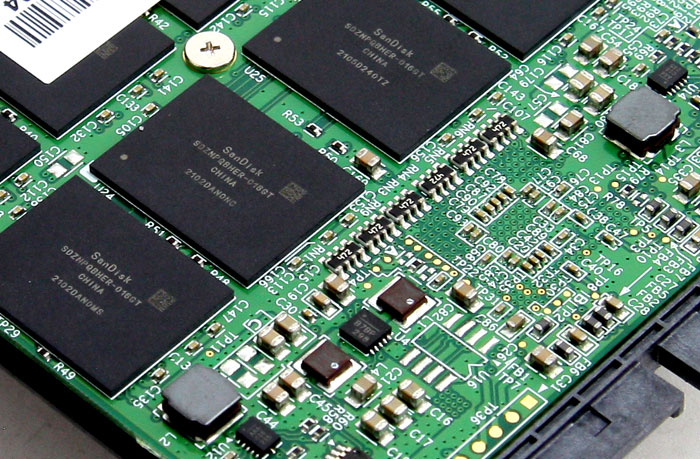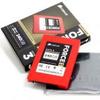Final words and conclusion
Final words and conclusion
The Corsair Force GS is a little gem as it is seriously fast. It does have an Achilles heel though, and that is its sustained write performance as that is continuously at the 300 MB/sec marker. Now -- writing say an ISO file at such speeds is obviously nothing to complain about, it's just that competing products in the same price range are often faster in that segment.
The flipside of things though is that the sequential read performance is astonishing fast. Where the SSD really shines though is pure and brutal IOPS performance, our IOmeter test scored 90.000 IOPS .. that's 90.0000 4K aligned files per second. These are just shocking numbers. So this SSD is just extremely fast when it has to deal with lots and lots of files simultaneously. The same can be said about trace tests (PCMark) which really are the best real-world usage tests. The Force GS simply dominates.
Armed with the SandForce 2281 controller as such we can say that the peak read and write performance on this product will be a notch higher when you compare it to Marvel and Indilinx based product. When you focus purely at IOPS performance, well that's where an SSD like this is a winner, hands down.

An SSD is enjoyable, very much so. If you put a drive like this into your SATA 3 compatible laptop or SATA 3 compatible PC, you'll have no idea what is about to hit you.
SATA ControllersSome overall recommendations then. Should you be in the market for a SATA 3 SSD then we have a couple of hints though, we absolutely prefer the performance of the Intel Series 6 or 7 (H67/P67/Z68/X79/H77/Z77) integrated SATA 6G controller over anything else available in the market. If you run an AMD chipset with the added Marvell 6G controller for example, you will see lower performance.
The new Asmedia controllers we spotted lately on motherboards are also offering good performance, albeit still 20%~25% slower then Intel's controllers. Also make sure you run your drive in AHCI mode, it does make such a difference in performance -- really guys, a big difference.
Prices HDD versus SSD
My advice is simple and I'll keep repeating this in each and every SSD conclusion; you probably should stop looking at the Solid State Disk technology as if it were a traditional HDD. We all will be old and grey before the two reach the same prices or top the multiple TB volume storage the HDD offers for less money. Comparing an SSD with an HDD is making a comparison in-between an integrated IGP or a dedicated graphics card, that last one will cost you a heck of a lot more yet you gain incredible overall performance. It is the very same with an SSD, use it as boot drive on Windows and applications and you instantly have removed a huge bottleneck, namely load and access times. It is a difference in-between night and day (in a proper system). For massive storage like movies, MP3 files and bulky data you do not access on a regular basis, sure that's where the HDD remains the winner as a cheaper storage solution.
The magic simply is finding a good combination in-between the two and balance things out. That's where the magic happens. I kid you not, all my test systems and work systems run on SSDs, not once have I considered going back to HDDs. The benefits of a good SSD are simply grand. But that doesn't mean I do not understand the budget and cost dilemma that many of you are facing though. There are still many variables and unknowns regarding life-span.
Concluding
The Corsair Force GS Series as tested today is a very fast and high performing product, it does arrive in a very crowded SandForce 2281 market though. The choice for Toggle NAND is a good one, however we doubt that in real-world usage you'd ever notice the difference to an asynchronous SSD of the same caliber. The IOPS performance is extraordinary fast, the read performance excellent, the sustained write performance a little iffy. But still silly fast. The trace benchmarks which we consider to be the most important, that's where the Force GS kills the competition really. That was just very impressive to observe.
Corsair definitely did it right, perhaps a future firmware can further optimize the sequential write performance a little -- then it could make this the #1 SSD to get. Corsair will cover this product with a three year warranty. Let me wrap it up, I have every confidence in the stability and extreme performance of the SF2281 Force GS based products, and as such I wouldn't hesitate using an SSD like shown today. The Force GS series as such come really recommended for the real storage performance mongers amongst you.
- Leave/read comments on this product
- Sign up to receive a notice when we publish a new article
- Or go back to Guru3D's front page

